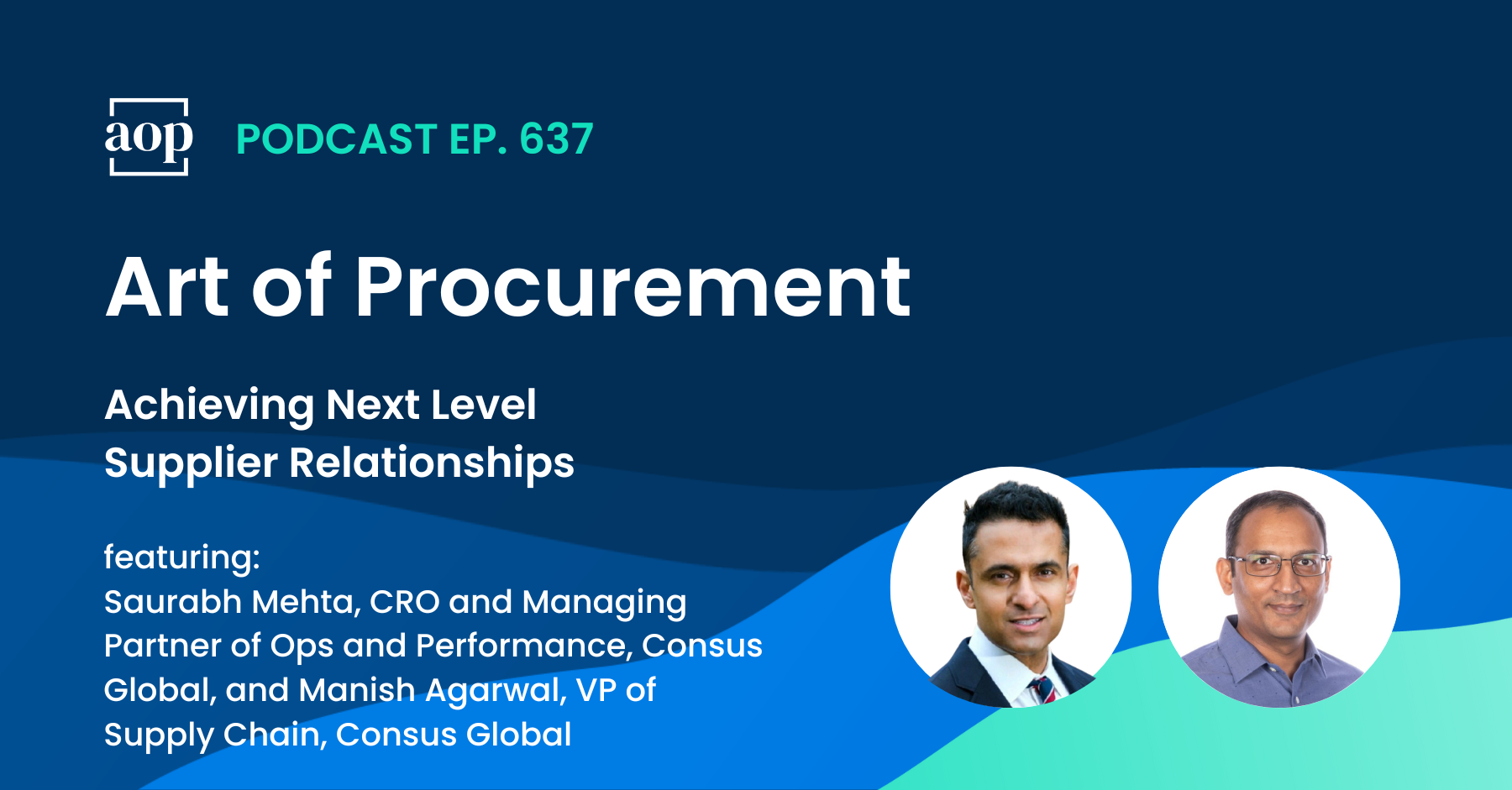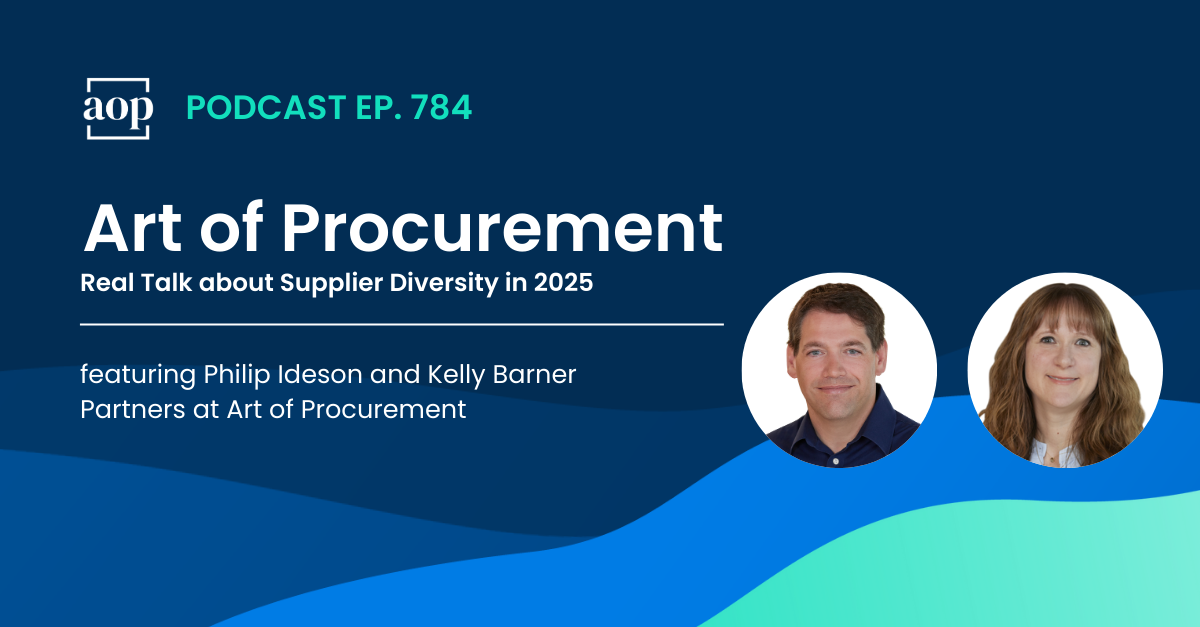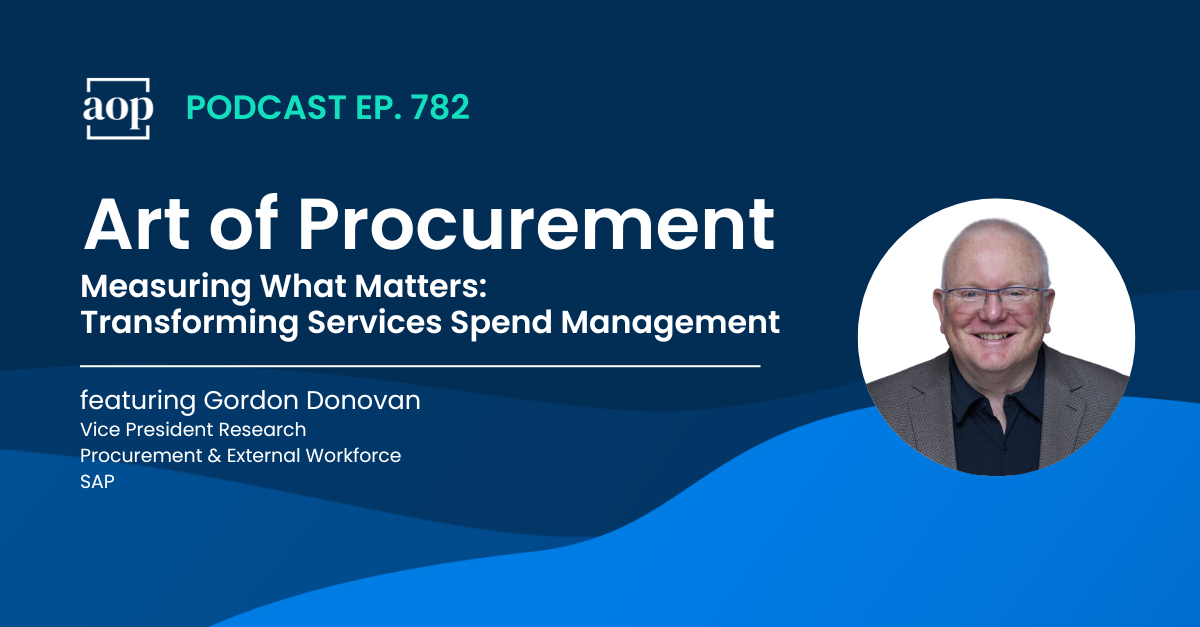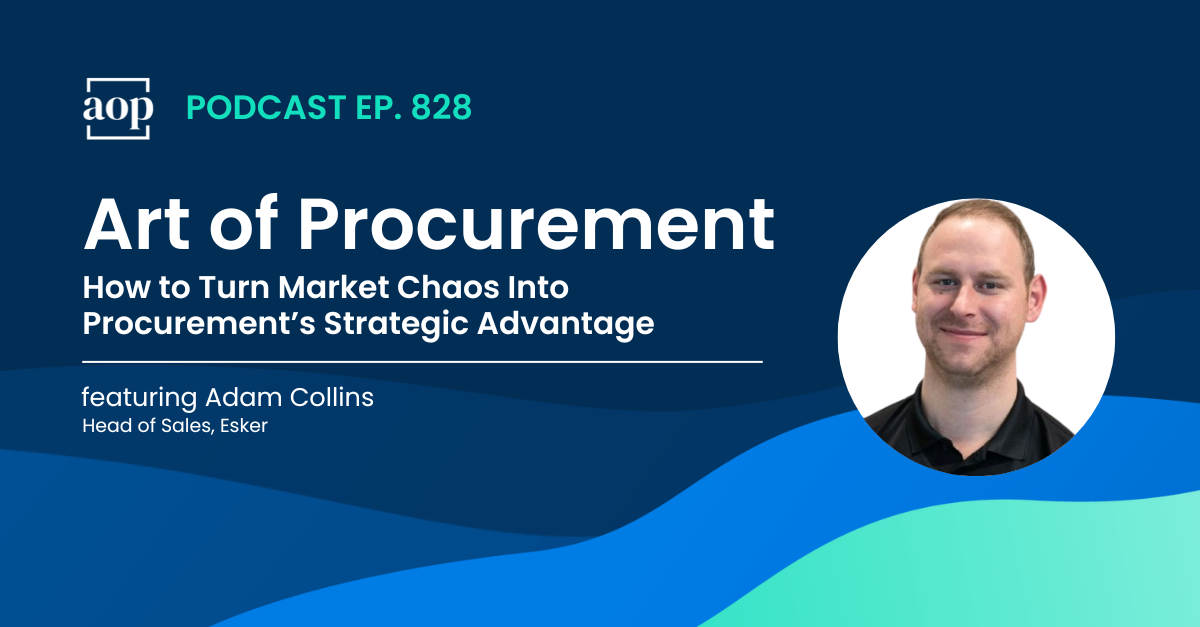
“Developing trustworthy and reliable suppliers is critical to your business, and maintaining those relationships is beneficial to the organization as a whole.” – Saurabh Mehta, Chief Revenue Officer and Managing Partner of Ops and Performance at Consus Global
Supplier relationships matter now more than ever. The supply chain volatility of recent years has pointed a glaring spotlight at the procurement-supplier dynamic, and reminded us that building and nurturing strong, healthy supplier relationships can have a profound impact on an organization’s efficiency, competitiveness, and overall health.
In a recent Art of Procurement webinar, Kelly Barner spoke with Saurabh Mehta, Chief Revenue Officer and Managing Partner of Ops and Performance at Consus Global as well as Manish Agarwal, their Vice President of Supply Chain, about the importance of supplier relationships and how procurement can elevate their interactions with suppliers for the greater good of the business.
With respect to today’s evolving and often challenging global supply chains, Saurabh pointed out, “We (procurement) have gone from the back page of meetings to the front page of every newspaper in the English-speaking world and where supply chain issues are being talked about over coffee and as a water cooler topic.” This emphasis has reinforced the importance of supplier relationships. “It has really placed a focus on maintaining healthy, open dialogue with your suppliers in order to ensure that disruptions to your business aren’t impacting your bottom and top lines.”
Improving supplier relationship management (SRM) with overall business outcomes in mind can also maximize the value procurement creates through those suppliers. Saurabh and Manish discussed a few of their top recommendations for ways procurement can build strong and healthy relationships with suppliers:
Identify Your Strategic Suppliers
At the core of effective SRM is identifying your strategic suppliers. These are the suppliers who play a pivotal role in your organization’s success, often defined through models like the Kraljic Matrix. These are not just any suppliers; they are the lifeblood of the business, as Saurabh put it, “without these suppliers, I cannot exist, or my business will be in dire straits.”
First identifying and then continuously evaluating or monitoring relationships with these core strategic suppliers is essential to ensure that procurement is focusing their efforts on the suppliers that matter most. These priority relationships should be tracked regularly by asking questions like: What are they giving us? How much are they giving us? Are we on track with what we need from them?
Track Relationships, Not Just Performance
It is common practice to track supplier performance, but what about tracking the relationship itself? To build strong and lasting relationships, it is crucial to monitor more than just metrics. Procurement should develop a framework or process focused on tracking supplier relationships and including a range of elements, such as understanding what suppliers provide and ensuring it aligns with the business’ needs. Maintaining a review cadence that suits both your organization and your supplier’s will ensure everyone is on the same page.
Supplier performance management should align with procurement’s wider efforts around supplier relationship management, and performance tracking should not overshadow the value of nurturing the relationships itself, even when things are running smoothly. “For me,” Saurabh said, “relationship management is keeping up with what the supplier’s capabilities are and frequent check-ins to see how each party is doing; the performance management factor comes in if there are actual issues, if things are not going well.”
Trust Your Suppliers
Trust is the foundation of any successful relationship. This trust should be a two-way street, benefiting both parties. It’s not always about money; sometimes, it is about goodwill and a genuine desire to help. Building trust can lead to unexpected and mutually beneficial opportunities that can lead to closer relationships with your suppliers.
Open communication is another benefit of trust, allowing the parties to share challenges and seek solutions together. “The key is to share your goals and what your intended path towards those goals are in order to foster trust,” said Manish.
Remember that suppliers have their own networks and resources; suppliers that trust you and that you have a good relationship with will be more willing to leverage all the solutions and resources available to deliver for your business, making a lifesaving difference when unexpected or serious problems arise.
Align Goals and Values
Effective SRM involves more than just transactional proficiency. It requires the alignment of goals and values with your suppliers. This alignment is akin to two travelers agreeing on their destination and the path they will take.
Establish goal and value alignment with suppliers upfront. Transparency here is key. Share your intended path and milestones, and ensure that everyone is moving in the same direction. “You need to share your destination,” said Manish. “You also need to share the path because I think it is the journey that matters – not just the destination – because there may be multiple paths to the same destination.”
In SRM, progress is the name of the game. It’s not about utilizing metrics at every step but looking at the broader direction of the relationship. Emphasize the journey rather than the destination. This approach allows for long-term partnerships that adapt and grow over time, thriving on mutual investment and progress.
Find the Right Partner
As Manish said, You will never find a perfect partner. There is always going to be some imperfection, but it is about saying, ‘This is the best partner I have for the destination that I would like to reach.'”
It is important to recognize that there is no such thing as a perfect supplier. Instead, focus on finding the best partner for your goals, which may require you to embrace imperfections and concentrate instead on alignment. The idea is to make the most of the partnership, despite any shortcomings. The objective is to walk the journey with the right suppliers, even if they aren’t flawless.
Building and nurturing strong supplier relationships is not just a nice-to-have; it is a key business driver and can have an enormous impact (positive or negative) on the health of the company. Most importantly, strong supplier relationships are not just about performance or transactions; they are lasting partnerships able to stand the test of time and sustain the operation through any supply chain volatility that comes.
Trust, transparency, and a focus on the journey, rather than just the destination, will help you establish supplier relationships that are built to last.
Subscribe to Art of Procurement
Apple | Stitcher | iHeart Radio | Email




